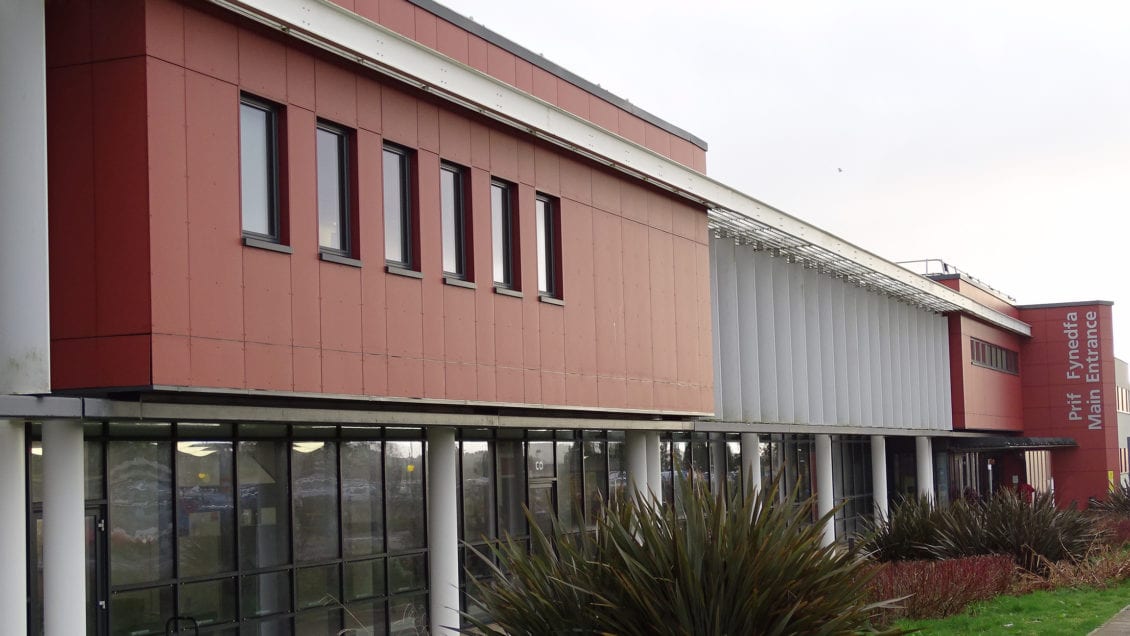Morriston Hospital will become the first in Wales to develop its own full-scale solar farm, at a cost of £5.7 million.
Work is expected to start early next year on the 4MW development on land at Brynwhillach Farm, linked to Morriston by a 3km private wire.
It will supply almost a quarter of Morriston’s power, cutting the electricity bill by around £500,000 a year and significantly reducing carbon emissions.
The solar farm will comprise 10,000 panels across 14 hectares of land. For comparison, the Morriston Hospital site is 18 hectares.
Swansea Bay has been awarded a total of £13.5 million for the solar farm and other energy-saving and carbon-reducing measures, repayable on an invest to save basis.
Following an extensive selection process, the health board selected Vital Energi as its partner.
Swansea Bay UHB Chair, Emma Woollett, said: “Our health board takes seriously our responsibilities to future generations by reducing our environmental impact and in particular cutting our carbon footprint.
“I’m especially delighted to see the hard work and commitment of our dedicated estates staff being rewarded in being the first health board in Wales to go green in such a pioneering yet practical way.
“Cutting our carbon footprint and cutting costs is a win-win for the health board, our patients and taxpayers.”
Swansea Bay spends around £6.9 million a year on electricity, gas water, and sewage treatment. This is expected to rise year on year, at a rate higher than inflation.
The investment in the solar farm and energy-reducing schemes will lead to a minimum guaranteed saving of more than £1.5 million a year. It will also reduce carbon emissions by around 3,000 tonnes a year.
Health board Assistant Director of Operations, Des Keighan, said the project was being delivered in two phases.
“The first phase was a range of energy conservation measures at Morriston and Singleton hospitals, and other health board premises.
“These included changing the majority of light fittings, and improving the insulation, lagging and upgrading building management systems.
“The second phase is the development of the solar farm, which will enable us to produce our own electricity.
“At peak production times this will meet the electricity demand for the entire hospital, whilst reducing our carbon emissions.
“This is in line with the Welsh Government’s commitment for the public sector to be carbon neutral by 2030.”
The energy conservation measures have been carried out throughout 2020 and will be completed early next year.
Work on the solar farm development is due to start in the early part of 2021 and should be operational by the end of the summer.
Mr Keighan added: “We will be the first health board in Wales to develop its own solar farm.
“It has been very challenging. However, with a lot of hard work from our project team, which included the Welsh Government and other key partners, we have managed to secure the development.”
Swansea Bay Chief Executive Tracy Myhill said: “As well as keeping our hospitals and facilities running 24 hours a day, 365 days a year, for our clinicians to deliver patient services, this is another example of the way in which our estates teams are making a huge contribution to our patients and communities.
“I commend everyone who has made this project a reality.”
Vital Energi Account Director Phil Mottershead said: “We were delighted to be selected as the health board’s partner.
“Being able to deliver solar energy on this scale for an NHS site is an exciting opportunity.
“Combining it with other energy conservation measures makes this a highly innovative solution for the NHS.”








Leave a Reply
View Comments